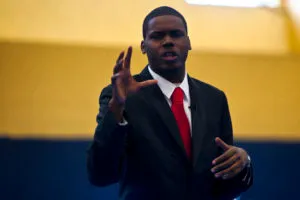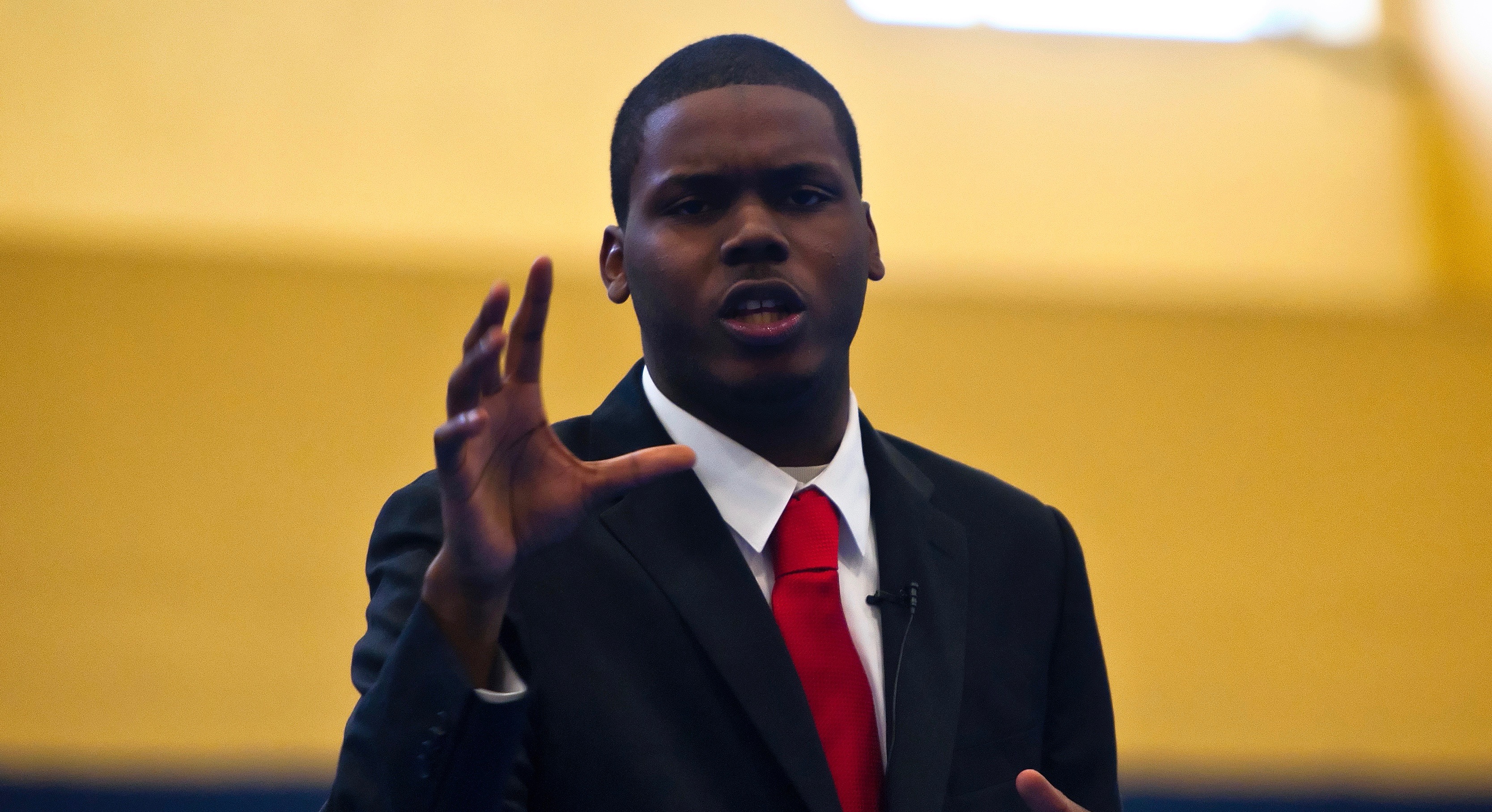
Michael Tubbs ’12 M.A. ’12, the youngest ever and first African-American mayor of Stockton, has received Stanford’s first Ira D. Hall Under 30 Service Award, a new honor recognizing commitment to the community among black Stanford alumni.
The award, presented last Friday at the annual awards ceremony of the Black Community Services Center (BCSC), is named after and sponsored by another Stanford alum, Ira Hall ’66 M.B.A. ’76. Hall was highly involved in service while at Stanford and throughout his career. He reached out to Director of the Black Community Services Center (BCSC) Jan Barker-Alexander to create the service award, which comes with a $2,000 prize. Hall specifically asked that the award be presented at an undergraduate event rather than an alumni ceremony in order to reach current students.
“I wanted to help motivate people to get engaged with public service early and throughout their career as opposed to what is some people’s model of… ‘Well, I’ll graduate and then I’ll go get established and then I’ll become successful and then I’ll have a family and then I’ll get engaged in public service,’” Hall said. “That can wind up being later than many people intend.”
As head of the Stanford Mid-Peninsula Urban Coalition in his early twenties, Hall combatted housing discrimination and promoted affordable housing development, health and justice primarily in the Peninsula area. He became the first black member of the Stanford Board of Trustees at the age of just 26.
“I encouraged [the head of the National Urban Coalition], rather than creating kind of a debate forum, to instead create action task forces around each of the issues in the community,” Hall said. “We had well over 100 people involved in the various task forces… It motivated me to always be engaged in public service the rest of my life, because I saw the power of people who had expertise and had volunteered their time.”
As the Ira D. Hall Award’s first recipient, Tubbs embodies the practice of making service an early priority, Hall said. Both while at Stanford and after graduating, Tubbs sought to improve his hometown of Stockton, which has long struggled with systemic, hard-to-solve issues like high crime and homelessness rates.
“When I first left Stockton for college, I thought, ‘OK, I’m successful now,’” Tubbs told the Sacramento Bee last month for a profile. “I made it.”
But events back home, including the murder of a cousin, pushed Tubbs to return to the city where he grew up.
“I decided it would be cowardly for me to continue to do research and write essays about all of Stockton’s problems and not try to do something about them,” he told the Bee.
As a sophomore at Stanford, Tubbs founded the group Save Our Stockton to advocate for resources and opportunities for his city’s youth. That same year, he created the Stockton Summer Success and Leadership Academy, also aimed at empowering young people. His legacy at Stanford also includes a student group called the Phoenix Scholars, which helps underserved high school students in California navigate the college application process.
At Stanford also Tubbs won a Truman scholarship, a prestigious national award for students with leadership and public service potential, as well as the University’s Lloyd W. Dinkelspiel Award for “distinctive and exceptional contributions to… the quality of student life.”
While still a senior at Stanford, Tubbs successfully campaigned to become a Stockton council member. His run even drew the attention of Oprah Winfrey, who donated $10,000 to his campaign — making Tubbs the third political candidate Winfrey had ever contributed to after New Jersey Senator Cory Booker and former president Barack Obama. After serving on Stockton’s council for four years, Tubbs was elected mayor last fall with Obama’s endorsement.
Tubbs could not be reached for comment, but Barker-Alexander and Hall both remarked on what Tubbs has achieved in a short time.
“[Tubbs] is only 26 and you can already say he’s had a lifelong commitment to service,” Barker-Alexander said. “Just as a kid, he was always about ‘How do I improve my city, how [do] I help people, how do I think about equity and social justice?’”
Contact Hannah Knowles at hknowles ‘at’ stanford.edu.
